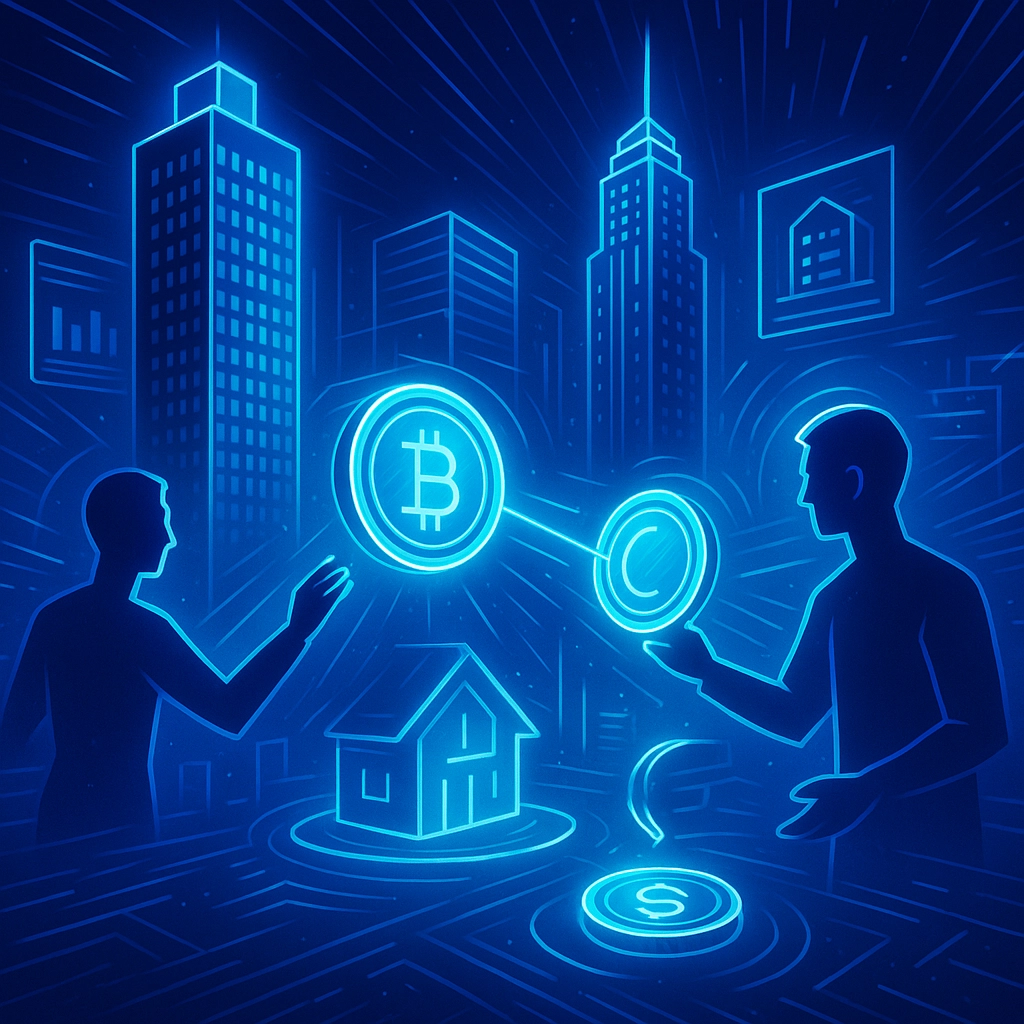Real Estate Reimagined: How Blockchain & Fractional Ownership Are Shaping Global Property Investing

Blockchain technology and fractional ownership are fundamentally transforming the global real estate investment landscape by dismantling traditional barriers and creating unprecedented accessibility to high-value property markets. This new approach uses digital tokenization to convert physical assets into tradeable digital shares, giving investors opportunities that were once reserved for a select few.
The convergence of blockchain and real estate investment is a major paradigm shift, targeting old challenges like high entry barriers, lack of liquidity, and geographic restrictions. Here’s a closer look at how tokenization and fractional ownership are rewriting the script of property investing.
The Mechanics of Blockchain-Based Fractional Ownership
Tokenization Explained
At its core, tokenization is about translating the value of a physical real estate asset into digital tokens on a blockchain network. Each token represents a fraction of the property’s total value. For example, a $5 million apartment building can be divided into 5,000 tokens, each valued at $1,000. Investors can purchase as many (or as few) tokens as they want, granting them ownership rights and a claim on income, proportional to their stake.
These tokens function similarly to shares in a company—they’re a digital proof of ownership. The beauty of this system is that tokens can be easily bought, sold, and traded, providing liquidity that’s traditionally been missing from real estate.

Smart Contract Automation
Smart contracts are self-executing digital agreements that live on the blockchain. For real estate, these contracts handle everything from transferring tokens to distributing dividends and managing voting rights. The process is transparent, insulated from human error, and much faster than the paper-heavy workflows used today. Automation slashes transaction costs, removes the need for middlemen, and makes the entire investment experience smoother for both buyers and sellers.
Market Accessibility and Democratization
Lowering the Threshold
Historically, direct access to high-performance real estate—think city-center offices or luxury apartment complexes—demanded enormous upfront capital, often millions of dollars. Now, through fractional ownership, investors can get in the game with much smaller amounts—sometimes as little as $1,000. This lowers the barrier to entry and opens premium assets to everyday investors, not just institutions or the rare few with deep pockets.
Global Reach
Because blockchain platforms operate online, investors around the world can access properties in different countries without fretting about local bureaucracy, currency conversions, or strict regulations. This cross-border capability is a game changer, enabling the creation of diversified global property portfolios right from your home office.
Micro-Investing and Instant Diversification
Micro-investing (allocating small amounts across many tokens) isn’t just a buzzword—it’s a revolution in risk management. Investors can now spread funds across various property types, cities, and even continents, reducing risk exposure and customizing their portfolios to personal strategies or appetites.

Enhanced Liquidity and Efficiency
The Liquidity Leap
Real estate has always been known for its illiquidity—properties can take months (even years) to sell, and there are often restrictions and penalties for early exit. Tokenization changes that. Tokens can be traded on secondary markets, sometimes instantly, giving investors newfound flexibility to cash out or adjust positions as needed.
Slashing Costs and Time
Traditional real estate deals often involve hefty fees to brokers, lawyers, and other intermediaries. Blockchain transactions, powered by smart contracts, dramatically cut out these middle layers. Costs are reduced, and deals settle in a fraction of the time—sometimes within minutes instead of weeks.
Transparent and Secure Trading
Every action (buying, selling, transferring) is recorded on an immutable blockchain ledger, providing a clear and tamper-proof trail. This level of transparency lowers fraud risk, improves regulatory compliance, and boosts investor confidence in the system.
Real-World Applications and Market Impact
Platforms Making Waves
Several innovative companies are leading the charge in blockchain-powered real estate. Examples include RedSwan, a platform offering tokenized shares of high-value commercial properties, and RealT, which allows investors to buy fractional interests in rental properties. These platforms handle everything from onboarding and KYC compliance to secondary market trading.
Centralized marketplaces mean investors can browse listings, perform due diligence, buy tokens, and manage their portfolios—all in one place, online.

Reshaping Premium Property Ownership
Previously, trophy assets—think iconic hotels, skyscrapers, or luxury villas—were either underutilized or locked away from most investors. With fractional ownership, these properties become accessible to a broader base, unlocking more value and potentially improving utilization and returns for owners.
Driving Market Flexibility
Fractional ownership isn’t just about access—it’s about agility. With tokens, investors can buy into new projects or exit out of existing ones much more easily in response to changing market conditions, making the overall real estate market more efficient and responsive.
Future Implications and Evolution
Maturing Regulatory Frameworks
As more governments and regulators recognize the potential (and nuances) of tokenized real estate, legal frameworks are evolving to better protect investors and standardize processes. Regulatory clarity is key to unlocking broader adoption and trust in these systems.
The Road Ahead: Smarter, Broader, Faster
Looking forward, blockchain is poised to further disrupt the sector. Artificial intelligence could be layered on top to offer automated portfolio balancing, predictive analytics, and personalized investment suggestions. Beyond residential and commercial properties, tokenization may soon expand to everything from vacation rentals to industrial parks and even agricultural land.
The Institutional Embrace
Institutions and family offices are starting to explore fractional ownership for proprietary investments and client portfolios alike. Increased transparency, automated compliance, and greater liquidity are huge draws for managing larger pools of capital.
Conclusion
Blockchain-based fractional ownership is breaking down the centuries-old barriers to real estate investment, making the global property market more accessible, efficient, and liquid than ever before. As technology and regulation continue to advance, platform-driven ecosystems like those offered by Mansa Investments are putting the world’s most exciting property markets within reach of every investor.
Ready to explore a modern approach to property investing? Visit Mansa Investments to learn more about how we’re helping our clients tap into the future of real estate.






